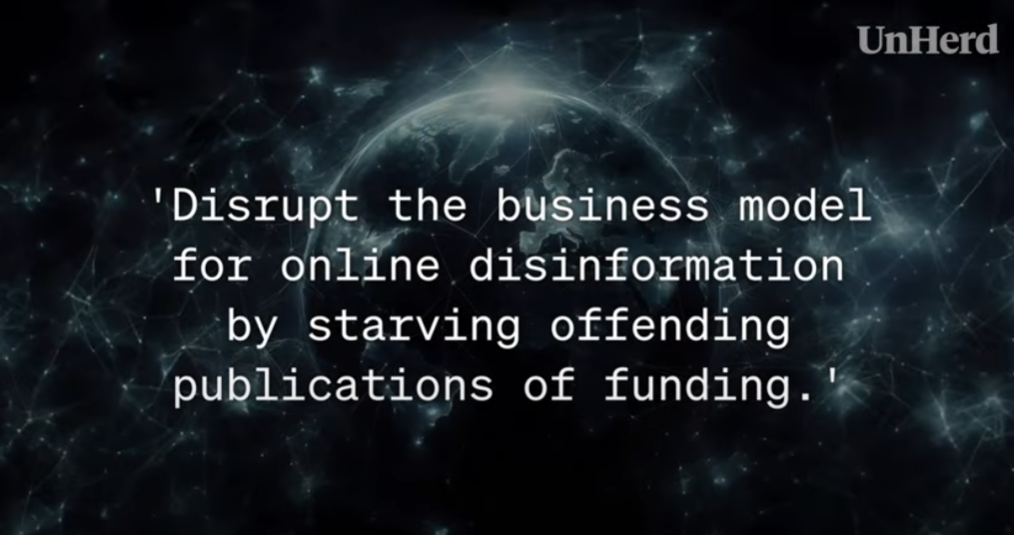SOURCE: UnHerd
“Our team re-reviewed the domain, the rating will not change as it continues to have anti-LGBTQI+ narratives… The site authors have been called out for being anti-trans. Kathleen Stock is acknowledged as a ‘prominent gender-critical’ feminist.”
This was part of an email sent to UnHerd at the start of January from an organisation called the Global Disinformation Index. It was their justification, handed down after a series of requests, for placing UnHerd on a so-called “dynamic exclusion list” of publications that supposedly promote “disinformation” and should therefore be boycotted by all advertisers.
They provided examples of the offending content: Kathleen Stock, whose columns are up for a National Press Award this week, Julie Bindel, a lifelong campaigner against violence against women, and Debbie Hayton, who is transgender. Apparently the GDI equates “gender-critical” beliefs, or maintaining that biological sex differences exist, with “disinformation” — despite the fact that those beliefs are specifically protected in British law and held by the majority of the population.
The verdicts of “ratings agencies” such as the GDI, within the complex machinery that serves online ads, are a little-understood mechanism for controlling the media conversation. In UnHerd’s case, the GDI verdict means that we only received between 2% and 6% of the ad revenue normally expected for an audience of our size. Meanwhile, neatly demonstrating the arbitrariness and subjectivity of these judgements, Newsguard, a rival ratings agency, gives UnHerd a 92.5% trust rating, just ahead of the New York Times at 87.5%.
So, what are these “ratings agencies” that could be the difference between life and death for a media company? How does their influence work? And who funds them? The answers are concerning and raise serious questions about the freedom of the press and the viability of a functioning democracy in the internet age.
